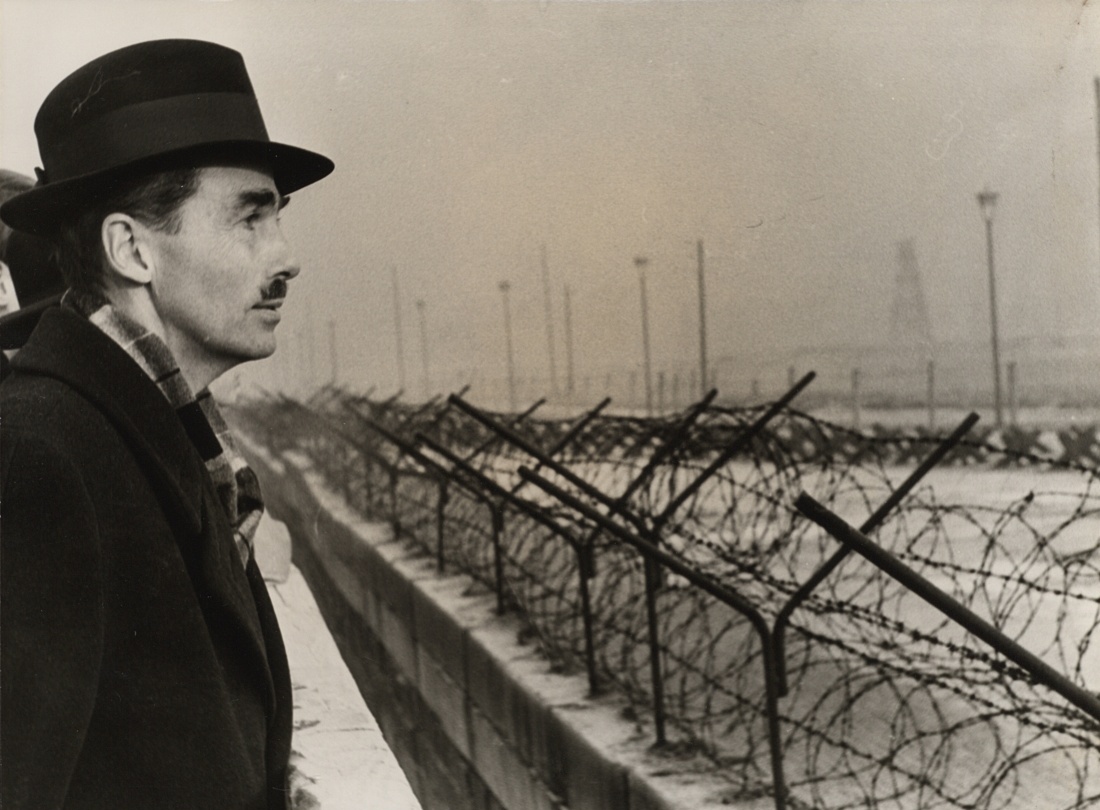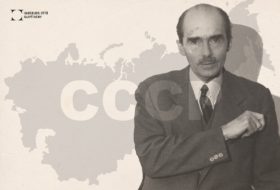The last Hungarian heir to the throne was a convinced anti-communist, and he expressed this not only in political statements, but also in thorough analytical studies. One notable example of this is the 1966 article “The Effects of Communism on the Cultural and Psychological Politics in Eastern Europe”, published in the Intercollegiate Review,[1] which was brought to our attention by Ed Feulner, founder of the Heritage Foundation. In it, Otto analyses at length the history and cultural life of each country under communist rule, and concludes that the communist system will ultimately fail because the human soul and spirit cannot be permanently shackled. The phrasing may seem overly idealistic and pathetic today, but according to Feulner, during the Cold War these ideas were a powerful force for young American conservative politicians and backbenchers like himself.
The situation of the communist regime and the Soviet Union remained a frequent subject of Otto’s work. An edited version of his lecture given in New Brunswick on 25 October 1980 was published in the autumn issue of the Munich-based Hungarian-language journal Új Európa. We quote this article at some length because the analysis of the former heir to the Hungarian throne is very accurate – and in the dramatic circumstances of our times, it is mostly relevant again.
“There are, in my opinion, three basic reasons for the Kremlin’s big breakthrough.
The first is the fact that for 60 years, the communist leadership has always been clearly striving towards a single ambitious goal. And that is: the world revolution. It has consistently pursued this goal since the days of Lenin. It is true though that the initial ideological enthusiasm has waned and many communists can see that the programme is showing cracks and flaws. Despite this, they continue to march on, never losing sight of the goal, at most forging new slogans. Clarity of purpose is a great help to subversive activity, as well as to the diplomatic activity of communists. The more effective party is always the one that knows where it is going, and the party that is always at a disadvantage is the one whose action is limited to defending the existing situation, to merely repelling the attacks of the enemy.
Secondly, one of the secrets and reasons for the communist successes is the perfect and brutal realism they apply. This allows them to avoid the pitfalls that most democracies, and the United States in particular, have often fallen into. And this is the temptation to pursue a policy of power – without using the instruments of power at our disposal! We must admit, because it is true, that one of the greatest secrets of Soviet success is the fact that: wherever they decided to undertake an operation, the necessary means were always made available, and these means, with the exception of a few miscalculations, were always the most suitable and appropriate for the purpose. The ruling communist oligarchy will never take the plunge before it is convinced of one hundred percent success. And once it has set out towards the goal, it does so without concern or hesitation; once it has set out, it is not restrained by any reservatio mentalis. The road of Marxist totalitarianism to world domination does not have stages like the American failure of the Bay of Pigs in Cuba. On the other hand, the communist leaders also know that you have to wait for the day of action, you have to wait for the right moment.
Thirdly, the secret of communist success, the explanation of their advantage over us: a total disregard for morality. In the eyes of civilised people, there are means that they simply cannot use. They, the other side, know no such moral inhibitions. Lenin openly stated over and over again that all means to an end are good and justified. We, on the other hand, continue to believe and profess – rightly – that no noblest end justifies the use of sinful means. For this reason, at least in the short term, we are definitely at a disadvantage in our fight against an aggressive enemy.
These three reasons and conditions ensure the success of the communists.”[2]
Even during the period of the change of regime, Otto retained his fundamental suspicion of reformist communist movements, no matter how friendly they seemed:
“For decades, we have been under the illusion that it is possible to achieve goulash communism or socialism with a human face. This political ‘fata morgana’, though repeatedly shown to be impossible, does not seem to be written out of some people’s minds. (…) Authoritarian regimes cannot be liberalised permanently, they only become tolerable when they disappear from the scene and are replaced by another system.”[3]
Finally, we recall a conversation between Otto von Habsburg and a colleague of the Süddeutsche Zeitung in the autumn of 2005, entitled “Putin is an ice-cold technocrat”.[4] Otto says that for him the 2004 enlargement of the European Union was one of the happiest moments of his life. He adds, however: “anyone who has lived through several wars knows that there is no economic development unless there is safety. So safety is the most important thing. And if we look at the map of Europe, we can see that there are some neighbours we cannot be happy about”.
The reporter asks which neighbours he means.
“Above all, the Russians” – says Otto –
“because Russia has always been expanding”.
He then goes on to talk at length about how the Russian president is a threat to Europe because, as a former member of state security, he is using tools familiar from the previous regime. He recalls an experience in 1990, when he performed at a regime-change event in Dresden, where Putin was then serving in the KGB, and gained first-hand experience of the future Russian president’s activities of the time.
The long shadow of the communist system cannot be ignored. And while we remember the victims with piety, we must also think about the responsibility of the democratic world to remind us of the horrors and absurdities of the decades preceding the change of regime. This is what Otto talks about in the rest of the interview, and it is also something Ed Feulner speaks about frequently. Since last year Feulner has been the president of the Victims of Communism Memorial Foundation in the United States, and he will be back in Budapest soon.
Gergely Prőhle
[1] Otto von Habsburg: The Effects of Communism on the Cultural and Psychological Politics in Eastern Europe. Intercollegiate Review, 3. (1966) 1., p. 1–13.
[2] Habsburg Ottó: A totalitárius kihívás. Új Európa, 19. (1980) 6., p. 8.
[3] Habsburg Ottó: Az önkényuralmak. Kanadai Magyarság, 1989. szeptember 16., p. 3.
[4] Putin ist ein eiskalter Technokrat. Interview mit Otto von Habsburg. Süddeutsche Zeitung, 5 November 2005.


